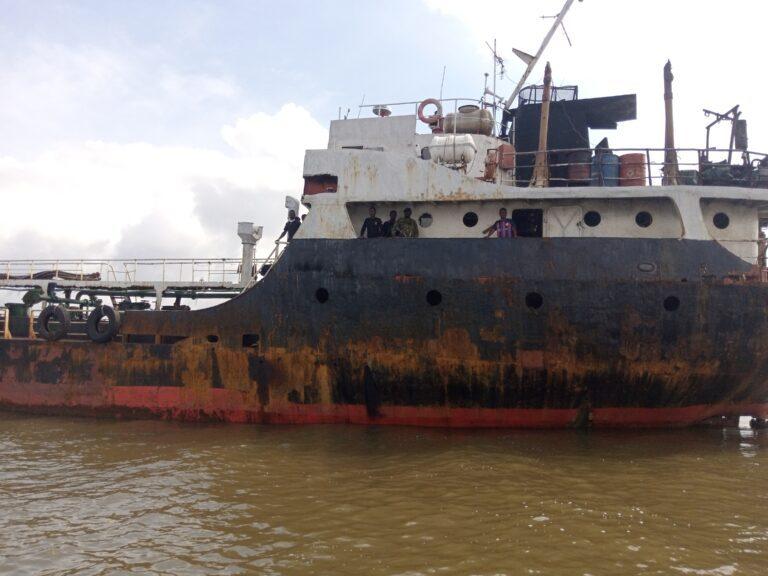The MT Prestigious vessel, currently under the custody of the Nigerian Navy and monitored closely in Bonny, remains a center of controversy amidst allegations of illegal crude oil activities. Newcross Exploration and Production Limited, the owner of the vessel, has expressed concerns over the operational disruptions caused by the vessel's detention.
**Allegations and Investigations**
The allegations stem from reports of illegal bunkering activities linked to the vessel’s International Maritime Organization (IMO) number, according to the IGP Illegal Bunkering Team’s visit on May 2, 2024. Despite these allegations, the captain of MT Prestigious, Donna Spectre, asserts that the vessel's sole purpose was to transport crude oil to the Bonny Terminal SBM3.
**Requests and Regulatory Challenges**
In response to the allegations, a request was made to collect cargo samples for fingerprinting. However, this procedure requires written approval from the Nigerian Upstream Petroleum Regulatory Commission (NUPRC) and must be conducted in the presence of an independent laboratory, complicating immediate actions.
**Dispute Over Vessel's Status**
Despite claims from the Niger Delta Renaissance Network about the vessel's release, the continuous presence of Nigerian Navy officers aboard MT Prestigious confirms that it remains detained. NewcrossEP has reached out to the NUPRC, urging a swift resolution through due process to avoid further hindrance to their operations.
**Economic Impact**
The detention of MT Prestigious has substantial financial implications, particularly affecting oil production and supply chains. NewcrossEP reports that the suspension affects over 100,000 barrels of crude oil per day, disrupts gas deliveries for both domestic and export markets, and impacts terminal operations. These disruptions pose significant challenges not only to the company but also to the broader network of stakeholders dependent on these operations.
**Calls for Government Intervention**
NewcrossEP has called for urgent intervention from regulatory bodies to ensure that their operations, crucial for the nation's oil and gas sector, can resume promptly. The situation highlights the delicate balance between enforcing regulations against illegal activities and sustaining essential economic operations within Nigeria's critical energy sector.
Ongoing Detention of MT Prestigious Vessel Raises Concerns Over Oil Operations
Admin
07:16
Tags:
Most Recent
3/recent/post-list
Random Posts
3/random/post-list




0 Comments